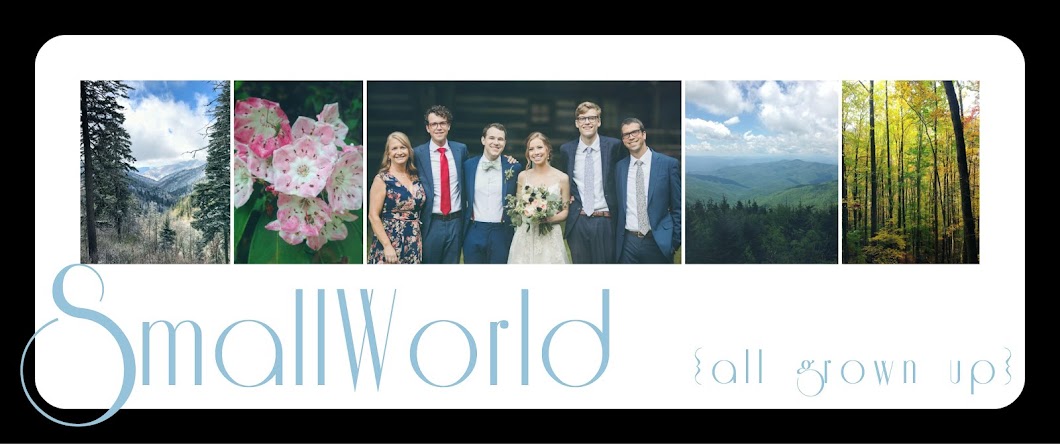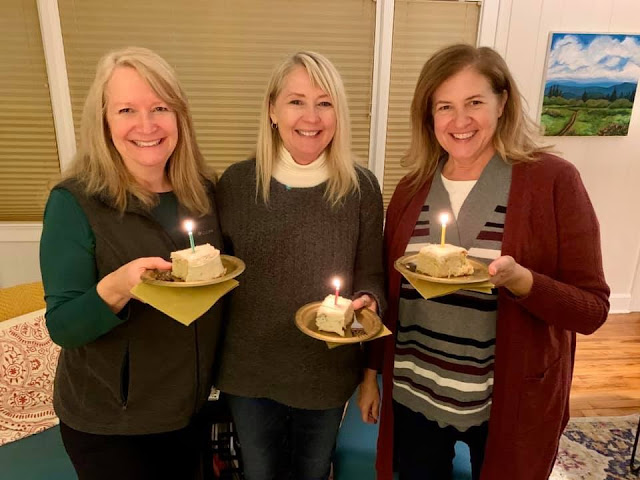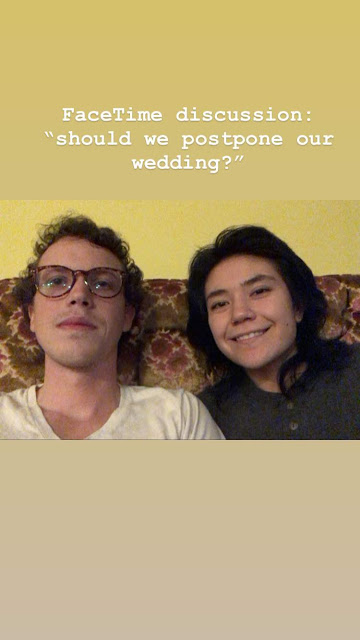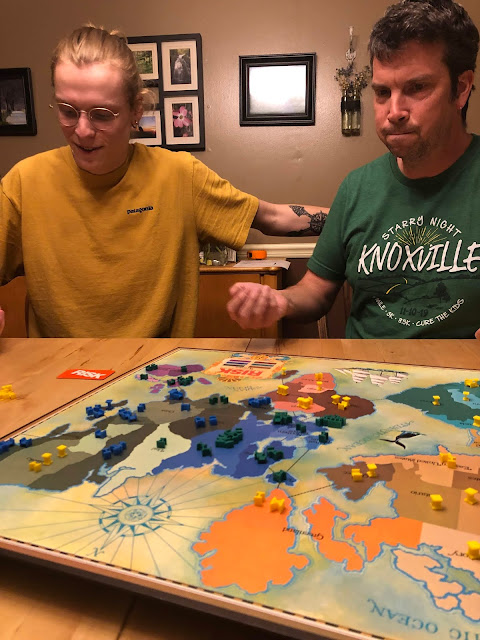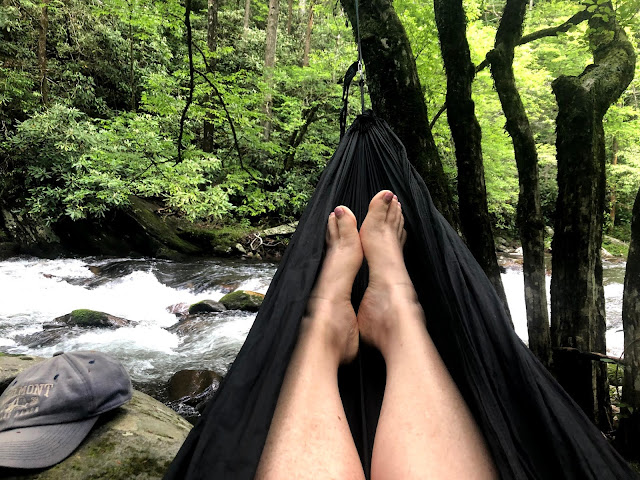Books Read in January
The Girl with the Louding Voice by Abi DaréThe story: Adunni is a fourteen-year-old Nigerian girl who wants two things: her mother, who was her greatest advocate, and an education. She can't get her mother back—she has passed away—but she is determined to get an education. This, her mother told her, is how she gets a "louding voice"—how she can speak for herself and determine her own path. Adunni lives in a traditional village in Nigeria, under traditional tribal laws. When her father pulls her out of school and trades her to an old man as his third wife, her dream of an education looks impossible. She faces daily abuse, drudgery, and fear, and then tragedy strikes. She makes a bold decision that saves her life and ultimately leads her to a new one.
My reaction: This was a perfect book with which to begin a new year. Adunni is the most wonderfully courageous young woman. She is compassionate, gutsy, curious, intelligent, and determined. The story is told through her voice, which makes this even more compelling, inviting the reader right into her world. In her words: “I want to enter a room, and people will hear me even before I open my mouth to be speaking. I want to live in this life and help many people so that when I grow old and die, I will still be living through the people I am helping.” I loved the wide array of women introduced in this novel, each with a different voice and a different experience. Some of their voices are muffled, some completely shut, some shouting, but each one cries out in some way for understanding. Highly recommended!
Caste: The Origins of Our Discontents by Isabel WilkersonThe story: Isabel Wilkerson explores the characteristics of caste systems, the way human beings are ranked, and shows how the United States is rooted in a brutal caste system that puts Black Americans firmly at the bottom of the ladder. She compares and contrasts the U.S. caste system with that of Nazi Germany and India. As she writes,
"Throughout human history, three caste systems have stood out. The tragically accelerated, chilling, and officially vanquished caste system of Nazi Germany. The lingering, millennia-long caste system of India. And the shape-shifting, unspoken, race-based caste pyramid in the United States. Each version relied on stigmatizing those deemed inferior to justify the dehumanization necessary to keep the lowest-ranked people at the bottom and to rationalize the protocols of enforcement. A caste system endures because it is often justified as divine will, originating from sacred text or the presumed laws of nature, reinforced throughout the culture and passed down through the generations."
My reaction: I think every single American should read this book. We need to be talking about this, teaching this in our schools, and working toward demolishing the American caste system. As Wilkerson writes (italics mine),
Americans are loath to talk about enslavement in part because what little we know about it goes against our perception of our country as a just and enlightened nation, a beacon of democracy for the world. Slavery is commonly dismissed as a “sad, dark chapter” in the country’s history. It is as if the greater the distance we can create between slavery and ourselves, the better to stave off the guilt or shame it induces. But in the same way that individuals cannot move forward, become whole and healthy, unless they examine the domestic violence they witnessed as children or the alcoholism that runs in their family, the country cannot become whole until it confronts what was not a chapter in its history, but the basis of its economic and social order. For a quarter millennium, slavery was the country.
Wilkerson uses stories about real people —including her own experiences— to show how insidious and pervasive the caste system is in America -- how it seeps into every aspect of our lives. I highlighted about a billion passages in this book. I had to put it down sometimes and just mull over what I'd read. Wilkerson is a wonderful writer, using just the right balance of personal experiences, analysis, and research, both historical and scientific. (At one point I shouted to my husband, who has a PhD in genetics, that I was reading about telomere length and understanding perfectly!) This book is a lesson, a reprimand, a call to action, a plea, and a challenge.
"Each time a person reaches across caste and makes a connection, it helps to break the back of caste. Multiplied by millions in a given day, it becomes the flap of a butterfly wing that shifts the air and builds to a hurricane across an ocean."
The Bookshop of Yesterdays by Amy Meyerson.
The story: Miranda's favorite uncle dies and leaves her his independent bookstore. Well, that's the simple way to explain the book. But Miranda, now in her late 20s, hasn't seen her uncle since she was 12-years-old, when he disappeared from her life without explanation. Her mother, his sister, won't talk about Uncle Billy. Her father just says, "Ask your mother." And the bookstore is on the opposite coast, far away from Miranda's current life as a high school history teacher. When Miranda returns for his funeral, she realizes his inheritance comes with a scavenger hunt. In order to solve the mystery of why Billy disappeared from her life, she has to follow the clues and put the whole story together: “Like Prospero, Billy wanted to tell me of his betrayal, the event that had exiled him from our family." And so the search begins, taking Miranda from person to person, event to event.
My reaction: Boy, did I ever need this one after reading Caste! This is lighthearted (mostly), warm, happy (mostly), quick read. This is a book lover's book, for sure. I love all the titles listed throughout, the literary references, the celebration of reading. And what a DREAM: to inherit a whole bookstore! Meyerson does a fantastic job immersing us in the world of bookstores—I could smell the books, feel the covers, and take comfort in the shelves. Miranda herself was a little annoying now and then, but certainly not enough to keep me from highly recommending this.
My biggest gripe: the title. I cannot remember this for the life of me! Shakespeare's The Tempest was such a prevalent theme throughout the book—Prospero Books and the name Miranda, just for starters. Why not use Prospero in the title? (Or maybe the title IS a reference from The Tempest, and I'm not getting it! "Dreamers of tomorrow and yesterday," perhaps...) I keep getting this title mixed up with others I've read recently: The Little Paris Bookshop, The Library of Lost and Found, The Book of Lost Friends... I know—it's a petty complaint and should not stop anyone from reading this lovely book!
My Dark Vanessa by Kate Elizabeth Russell
The story: Vanessa is an outcast at her boarding school. She's lonely, friendless, isolated, and 15. She's the perfect prey for a predator like her 40-something English teacher, Mr. Strane. He singles her out and grooms her carefully, telling her that she's just like him, that he's madly in love with her, that she's brilliant. He knows all the right things to say, knows exactly how to manipulate Vanessa. Over 15 years later, he still knows all the right things to say: he knows how to convince her to keep their story quiet when another young woman, and then another and another come public with accusations of being abused by Strane. "They're lying," he tells Vanessa, and she believes him. He has been telling her since she was 15 that she's special, after all. The book alternates between 15-year-old Vanessa and Vanessa in her early 30s, when the accusations are flying about Strane. It's the #metoo movement, and Vanessa claims she is NOT a victim: that she made all her own choices, willingly. How long will she keep protecting her abuser?
My reaction: Haunting. Disturbing. Unsettling. Brilliant and brave. My heart absolutely broke for Vanessa, over and over again. This book is full of triggers, so beware. It is a difficult, gut-wrenching journey. To read how a 15-year-old is brainwashed, manipulated, and degraded by an authority figure is just so heartbreaking and maddening. I was angry at her parents for treating her like a leper, for the school for not pursuing the initial report of abuse, and of course for Strane for being a despicable pedophile. But I was never angry with Vanessa, who was so deeply twisted by Strane that she could not see the truth of their "relationship." This book is not for everyone, for sure. It is raw, graphic, and so disturbing, but Russell does an incredible job of inviting the reader to explore the complexities of abuse, the thread between abuser and the abused, the voiced and the voiceless. Highly recommended but know ahead of time: this is hard stuff.
The Dollhouse by Fiona Davis.
The story: Rose is a 30-ish journalist who has recently moved into the once glamorous Barbizon Hotel for Women, now luxury condos, with her partner. She becomes intrigued by the older women who live on the fourth floor of the hotel—women who are long-term tenants, now living in rent-controlled apartments. She learns that one woman fell to her death in the 1950s, another has a terrible scar on her face from some kind of altercation. Rose pitches the story to her editor and starts interviewing these women. From there, the book alternates between Rose's present day story and the story of Darby, one of the Barbizon women in the 1950s.
My reaction. The first half of the book was great... and then it fell apart. Darby's story just took too many unrealistic turns, and Rose's story never reached much development after the first half. I mean, she thinks she is about to get engaged, and then her boyfriend leaves her for his ex-wife. Exit long time almost fiancé, enter new guy. She's over her ex really fast. And there were a lot of references to what "really" happened at her previous job, but it just seemed extraneous and distracting. Darby's 1952 story could have been so much more interesting had it been given more attention. The characters there held promise. It was as if too many stories were happening at once, and none of them made it to a satisfying conclusion. Honestly, the book just went on way too long, and the climax was like a balloon that slowly and limply deflates.
Linked up with It's Monday! What Are You Reading?
Books Read in February
Woman 99 by Greer Mcallister
The story: It's the mid 1800s, and Charlotte's beloved older sister, Phoebe, suffers from what appears to be bipolar disorder. Her parents commit Phoebe, who they consider to be an embarrassment to the family, to an insane asylum. Charlotte absolutely cannot let Phoebe rot away there, and she hatches her own insane plan: she'll get herself committed to the asylum so that she can bring Phoebe home. By appearing to be suicidal, Charlotte gets sent to the asylum. She is shocked and horrified to discover that many of the women have been committed merely because they were somehow not "proper" women: they suffered from postpartum, loved the "wrong" person, or perhaps their husbands were just tired of them. She learns their stories while searching for Phoebe, and she also considers her own life and pending wedding.
 |
| Willard |
My reaction: I've always been both drawn to and terrified of books about asylums. The tension is real! I grew up on Seneca Lake, roughly across and down some from
The Willard Asylum for the Chronic Insane, and
Willard, as we called it, loomed largely in our young imaginations. I used to terrify myself by imagining that an escaped inmate would row a boat across the lake and land on our beach. Anyway... it's always been a strange fascination of mine. The thought of Charlotte willingly entering an asylum was both fascinating and unbelievable to me. I enjoyed very much the descriptions of the various wards, each focused on a different "ailment": love, silence, oversexualization, melancholy, etc. And I loved that Charlotte quickly recognizes that so many of the women in the asylum are there simply because they are inconvenient in some way. This is basically storage for women who dare to buck the system. There were definitely times that the book was too repetitive and drawn out, and some scenes seemed quite implausible; however, I found the book ultimately satisfying. For a book about an asylum, it was not graphic nor horribly disturbing. Recommended!

The story: This is a marvelous story of a brother, a sister, and their rightful inheritance, the Dutch House, a grand house purchased by their father and ripped out from under them at his unexpected death. For the rest of their lives, Danny and Maeve try to figure out what went wrong and how to get it all back. They move forward with their lives when they are apart, but each time Danny and Maeve get together, they pick apart every detail of the events that led up to their father's death. Other people in their lives fill in details now and then, and as they leave middle age, the siblings finally have some closure as questions are answered.
My reaction: Ann Patchett is just the real deal. What a storyteller! Everything about this works together. There are no loose ends, no wondering for me. The characters, including the house itself, are all richly drawn. It's somewhat of a Hansel and Gretel tale, with an evil stepmother, a kind but distant father, and that irresistible gingerbread house that draws them back again and again. I love Ann Patchett, and I love this book.
The story: It's just after the Civil War, and Marion has spent the past year as a battlefield nurse. While she was gone, her beloved sister, Alice, was committed to an asylum by their brother and his wife. And then Alice fell off the roof of the asylum and died. Everyone assures her that Alice committed suicide, but Marion knows she would never do that. So how did Alice get to the roof, and who pushed her? Let it go, her brother and his wife tell her, but she cannot rest until she finds out how Alice fell.
My reaction: Eh. Well, first I have to say how weird it is that I read yet another book this month set partially in an asylum in the mid-1800s. Between this and Woman 99, the latter is far more interesting. This one had so many missing pieces. It was terribly disjointed, and at times I felt as if I were in an institution. None of the character, except the dead Alice and the nephew, were particularly likable, and I like books with likable characters. I'd give it a solid 3.5.

The story: Lucia and Miranda are Chinese-American sisters, fiercely loyal to each other. Miranda, as the elder sister, is protective and motherly toward Lucia, who is carefree and impulsive, a girl who thoroughly enjoys each moment of life. Both sisters are independent and brilliant, but as Lucia heads into her 20s, she develops a mental illness. Only Miranda knows about it for awhile, until Lucia marries Yonah. Within the first year of their marriage, the "serpents" begin tormenting Lucia. The voices in her head drag her down, and Miranda is there to rescue her. Their relationship suffers, as Miranda becomes more and more insistent that Lucia take her medicine, and Lucia resists. Lucia spends the next decade or so in and out of hospitals, in and out of relationships, and in and out of motherhood. Miranda is walks the tightrope of caring too much and letting go.
My reaction: What are the chances that I would read yet a third book centering on two sisters, one of each pair with a mental illness, in the span of a month? This was totally not on purpose; I just grabbed the books when they became available on the library's electronic reading system. This is my favorite one by far. This book is so beautifully written. Each of the characters — Lucia, Yonah, Manuel, Esperanza, and Miranda — is richly brought to life. We are especially submerged in Lucia's world— from vibrant and then impoverished neighborhoods in NYC to rural Ecuador. Lee's perspective on various immigrant experiences in the U.S. was powerful and so lovingly written. I especially appreciated the section on Lucia and Manuel, an Ecuadorian immigrant who is constantly afraid of being deported. Lee paints all her characters with such tenderness and such vivacity. Miranda and Lucia are a classic pair: the Martha and Mary, the steady worker and the prodigal daughter, one responsible and one reckless; but both fight demons in their own way. Highly recommended. These characters will stay with me for a long time.

The story: This is a sweeping story of a family through many generations and across continents, beginning with the half sisters, Effia and Esi, who are born into different villages in Ghana in the 1700s. One sister is sold into slavery; the other is taken as an Englishman's Ghanian wife. (He has another back in England.) From there, the novel proceeds through subsequent generations of each sister's line, telling a different family member's story up until present day. One line goes through Ghanian warfare, the slave trade, and colonization; the other sister's descendants are enslaved people on Southern plantations, convicts in the coal mines, part of the Great Migration, and all the way to today. Ultimately, the two lines meet again in a powerful, hopeful conclusion.
My reaction: Brilliant. Heartbreaking. Beautiful. Eye-opening. This is a tremendous undertaking on the part of Gyasi (this is her debut novel), and she absolutely succeeded. Each character's story is told with such love and devotion; it's as if she freed dozens of voices to speak and say, "I am here. I lived, and I loved, and I have a story you need to hear." I wish I had read this in an actual hard copy book rather than on my Kindle because Gyasi includes a wonderful family tree at the beginning that I should have returned to again and again, to keep all the characters straight. I am too lazy to do this on my Kindle. That is a small, reader's issue that has nothing to do with the actual novel itself, which is astonishing. Read it. Pay attention. And then tell someone else to read it. Truly incredible.
And that's it for February! I've started March with Fredrik Backman's Anxious People. So far, so good!



